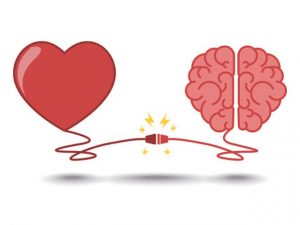 Heart troubles are no laughing matter. From the dawn of civilization, the heart was recognized as one of the vital organs central to our very existence.
Heart troubles are no laughing matter. From the dawn of civilization, the heart was recognized as one of the vital organs central to our very existence.
Where do we keep our fondest memories and our top secrets? In our hearts. What do men offer women (aside from their hand) in exchange for her love and care? The heart. Sincere moments are truly heartfelt, whereas life’s sad events can be heartbreaking. Whichever way you look at it, the heart occupies a central part of our health and our culture.
Advertisement
The hard working muscle that never stops pumping, our heart ensures that every corner of our body gets a sufficient supply of oxygen-rich and nutrient-packed blood. So, it comes as little surprise that any trouble in the heart can impact the healthy operation of the rest of the body. Take any aspect of your health, whether it be sexual performance, energy levels, or even digestion, and you will inevitably find a link to heart.
Modern medicine has reached incredible heights, to the point that a patient can receive a heart transplant in a severe case of heart failure where all other treatments prove ineffective. Yet, there are always risks associated with the surgery, not to mention that it’s an extreme measure when a life-saving intervention is required. Taking proper care of your heart health is always more effective than ad hoc treatment efforts once the disease has set in.
A healthy heart means a healthy brain
Did you know that circulatory disorders are responsible for up to 50 percent of cognitive decline cases? The simplest example is the detrimental effects of mini-strokes, or transient ischemic attacks, which temporarily reduce blood supply to the brain.
The recent Atherosclerosis Risk in Communities (ARIC) study established a strong link between one’s cardiovascular risk factor status in midlife and their chances of having amyloid deposits in the brain (a precursor to Alzheimer’s disease). The researchers assessed the participants’ heart health risk factors at an average age of 52. Twenty years later, the subjects underwent a PET scan. The results have shown that people who had even one of the factors—smoking, high blood pressure, diabetes, high cholesterol, obesity—were twice as likely to have amyloid deposits in the brain. Two or more factors were associated with triple the risk.
Advertisement
Incidentally, some of the main foundation blocks of heart health also play a crucial role in your brain health. The ultimate eating style for heart health, the Mediterranean diet, can actually slow down the rate of cognitive decline. A meta-analysis of 39 clinical trials concluded that physical activity, an essential component of a heart-healthy lifestyle, can also delay cognitive decline. Last, but certainly not least, we shouldn’t underestimate the importance of sleep for both heart health and brain health. Researchers speculate that there are amyloid-clearing processes taking place in our brain when we sleep. Not to mention that a good night’s sleep is your recipe against a range of cognitive risk factors such as diabetes, insulin resistance, cardiovascular disease, as well as stress and depression.
As you can see, it all comes down to the age-old saying, “a healthy mind in a healthy body.” A healthy brain goes hand in hand with a healthy heart, so if you needed another reason to take care of your cardiac muscle, there you go.
Related: 16 superfoods for a healthy heart
